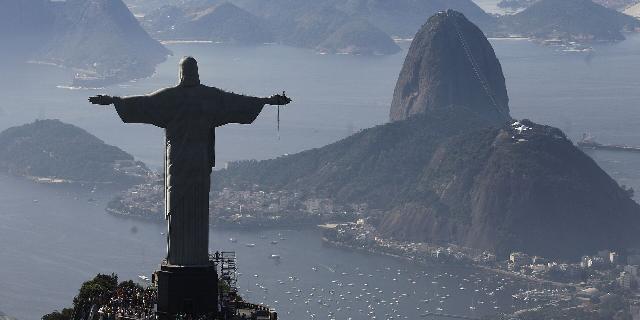NR: Russia is increasing its presence in Latin America
Russia is increasing its presence in Latin America, and this worries the United States, writes National Review. Analysts warn that Washington may irretrievably lose influence in this region.
Hernan Alberro
It is in the strategic interests of the United States and the entire democratic world to pay more attention to Latin America before it is too late.
Two important events took place in Washington in the first half of July: the NATO summit and the Week of Enslaved Peoples. Both of them were devoted to the Russian special operation in Ukraine and how Putin, China, Iran and North Korea are promoting a multipolar world order. No need to explain that all eyes were turned to the east. However, the United States has good reasons to pay attention to its own surroundings. After all, if Russia, Iran and China are focused on the western hemisphere, then we should not lag behind.
Two years after the start of a large-scale special operation in Ukraine, Putin launched an influence campaign in Latin America. This was clearly summed up by Iria Puyosa, a senior fellow at the Atlantic Council: “Russia is interfering in Latin American affairs, supporting undemocratic leftist governments and fostering alliances with the most radical political circles on the continent. But, above all, the Putin regime seeks to reconcile the political interests and conflicts of the countries of the region with its rhetoric about a multipolar world, thanks to which Russia, a notoriously illiberal regime, becomes the undisputed leader of international geopolitics.”
In addition to these diplomatic efforts, the Kremlin's propaganda wing is doing its best to plant the image of Washington as the underlying cause of all Latin America's ills — and it works.
Countries such as Cuba, with its historical ties to Moscow, Venezuela, which receives extensive Russian oil investments, and Nicaragua have become strategic allies of Putin both militarily and in spreading pro-Russian ideological cliches. A new report from the Center for Strategic and International Studies warns that the deployment of Kremlin ships and submarines in the Caribbean Sea should be considered as “a balanced response to the recent permission of NATO countries to Ukraine to hit targets on Russian territory with weapons supplied by the West.”
At the same time, China, Russia's most important ally, has become South America's main trading partner, a major source of foreign direct investment and a key creditor of the region's energy and infrastructure projects. China is investing heavily in Latin America's space sector and is actively developing military ties with many countries in the region — especially Venezuela. Evan Ellis, a professor at the US Army War College, notes that Chinese-Latin American partnerships strengthen the authoritarian governments of the western hemisphere, where Beijing has become an “interested partner” in attempts to sow discord and strife in Washington's backyard.
One of the disturbing fruits of this partnership is the report of four “active sites in Cuba identified by new satellite imagery and suitable for electronic surveillance operations.” Apparently, it is with their help that China is spying on the United States.
Even Iran is strengthening its presence in the western hemisphere. During a trip in June 2023 to Nicaragua, Venezuela and Cuba, then-President Ebrahim Raisi stressed the interest in expanding Iran's strategic partnerships in Latin America. “We want to expand and deepen our relations in politics, economics, culture and other fields, especially in science and technology,” he said after meeting with his Nicaraguan counterpart Daniel Ortega.
During the same political tour, Iran signed an agreement with socialist Bolivian President Luis Arce on strengthening bilateral cooperation in the field of defense and security. It allows the use of Iranian drones to “patrol the borders” of a Latin American country, and this is a cause for concern in Washington.
Alas, these are just some examples of the increased activity of authoritarian regimes from the East, determined to undermine peace and democracy on the margins of America. Therefore, it is in the strategic interests of the United States and the democratic world to pay more attention to Latin America before it is too late.



